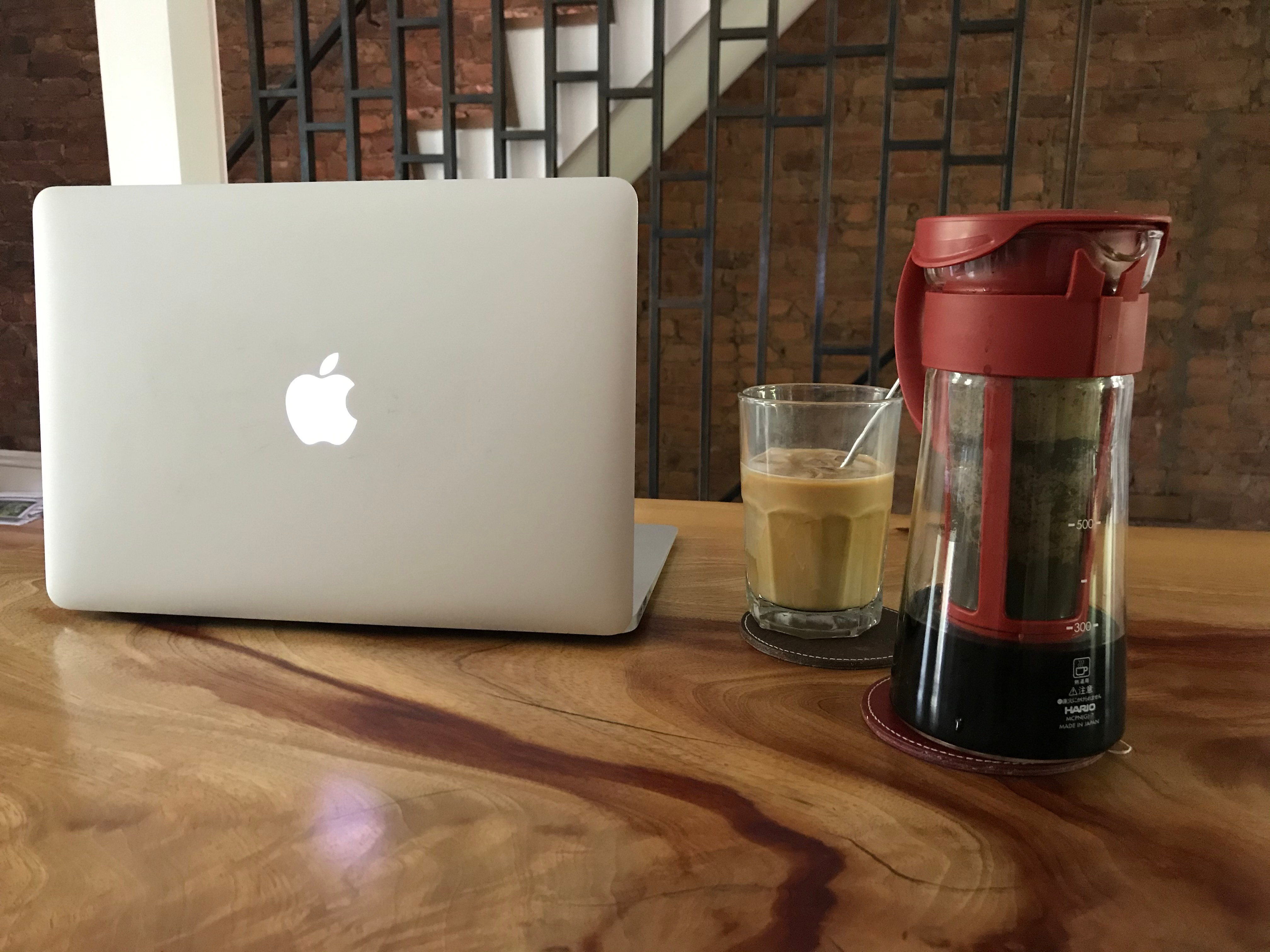
In Nature Methods’ April Editorial, we discussed a little bit about how our work at the journal has been affected by coronavirus. The US-based editors on our team have now been working from home for over two months; China-based editors are just now returning to the office after nearly four months! Here are some thoughts about how we’ve been adjusting and coping during this unprecedented time.
We’re generally okay.
We’re grateful to be healthy and safe at our homes, continuing mostly business-as-usual. Weekly team meetings by video, regular one-on-one catch-ups, virtual lunches, and a Slack channel are helping keep us well-connected. We’ve even trained our newest team member entirely remotely. Together, we celebrate the little things that now seem very momentous – taking a walk to get a coffee; making a successful baked good; receiving a grocery (or wine!) delivery.
Still, many days are hard.
We worry about our older relatives and friends and about people we know who are sick. We’ve been shocked and saddened to learn of a couple of our authors and reviewers who have died from complications related to COVID-19. We worry about the economy. We miss seeing each other, as well as our other Nature Research colleagues, in the office. We miss traveling to conferences. Working from home all the time makes it harder to separate work from personal time. Some of us struggle with the challenges of working full time and caring for small children or supervising remote schooling for older ones.

My home office - laptop, dining table, cold brew coffee.
Submissions are up – way up.
In March, April and now May, we’ve seen a ~50% increase in manuscript submissions. This is keeping us busy, but it is very good news that researchers are managing well, especially since we had expected that submissions would rapidly drop when the coronavirus started spreading around the world. (We have wondered, however, whether certain geographical regions or whether female researchers are more impacted by social distancing restrictions and we hope to look into this.) We’ve also been receiving some interesting proposals for Review or Perspective articles – and look forward to publishing some great pieces over the next year.
We’re seeing a substantial number of coronavirus-related submissions – but few that are in-scope.
Unfortunately, we consider diagnostic methods, epidemiological methods, and therapeutic approaches to be beyond the basic research scope of Nature Methods. However, we are open to considering new methods that can be applied to study the biology of SARS-CoV-2.
We’re being more flexible with peer review deadlines.
We understand that some reviewers may need more time due to changing work or home commitments, and we will honor most reasonable requests. However, we hope that reviewers will be realistic about the time they have to devote to peer review and decline invitations (and suggest alternative reviewers) if life is just too chaotic at the moment.
We’re being more flexible with revisions.
We understand that many authors cannot get to their labs to perform new experiments, or that such revisions will be delayed. We are carefully considering which experiments suggested by reviewers are truly essential to do and which are not, and we are happy to discuss revision plans with authors by email or phone or video chat.
We’re bringing you coronavirus news.
Our May Technology Feature and several pieces on our community news blog described how many labs are working intensely to study the SARS-CoV-2 virus and to develop well-performing diagnostic assays.
Challenges will spur innovation.
The disruption that this pandemic has brought to our working lives also gives us an opportunity to reevaluate how we can improve our editorial processes to be more efficient and more transparent for our authors. We’re also exploring additional ways to stay virtually connected to the research communities we serve, including attending conferences that have moved online, and doing virtual lab visits.
A global pandemic brings out the best in many people.
We have been truly touched to hear kind words of concern from so many of our authors and reviewers. Some have relayed expert health advice; others have offered to send masks to our team. Most authors have also been very understanding that peer review may take a little longer than usual at the moment. We thank everyone who has reached out and hope that all of our readers stay well.
Follow @AllisonDoerr14 on Twitter.
Follow the Topic
-
Nature Methods

This journal is a forum for the publication of novel methods and significant improvements to tried-and-tested basic research techniques in the life sciences.
Related Collections
With Collections, you can get published faster and increase your visibility.
Methods development in Cryo-ET and in situ structural determination
Publishing Model: Hybrid
Deadline: Jul 28, 2026




Please sign in or register for FREE
If you are a registered user on Research Communities by Springer Nature, please sign in